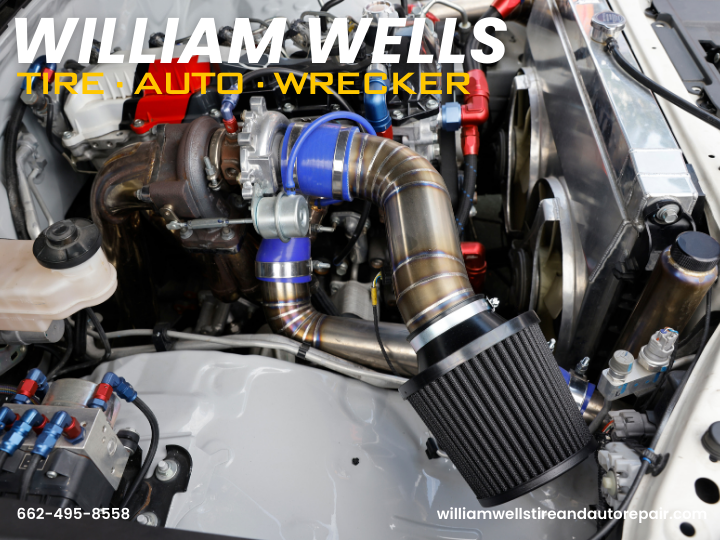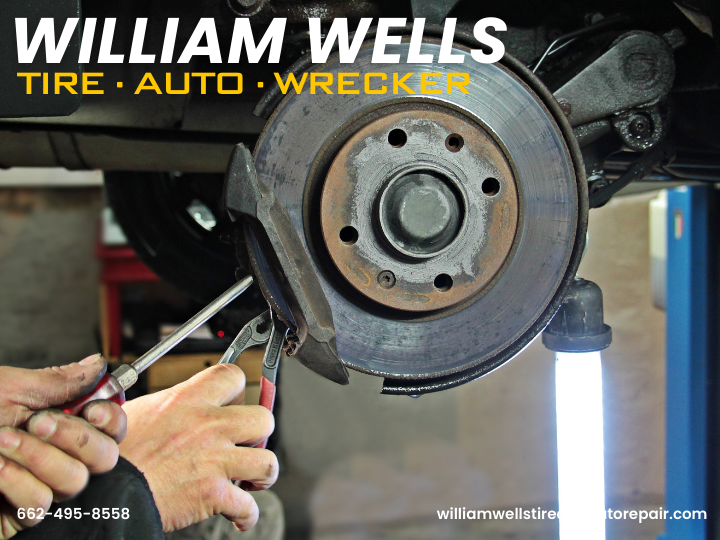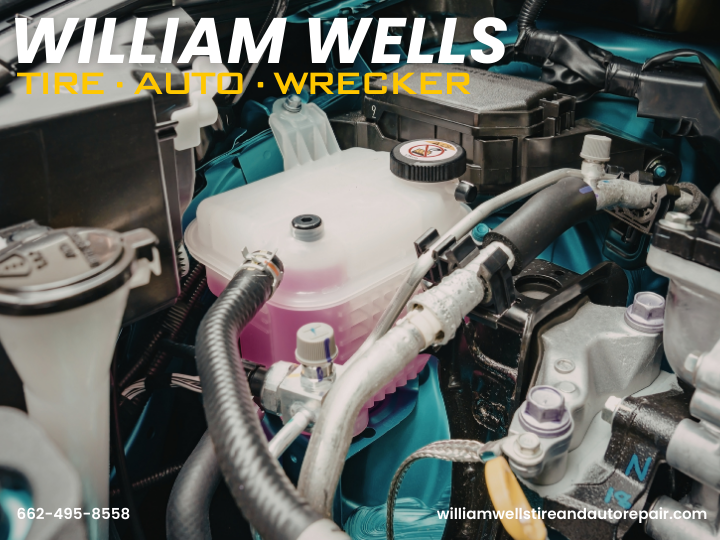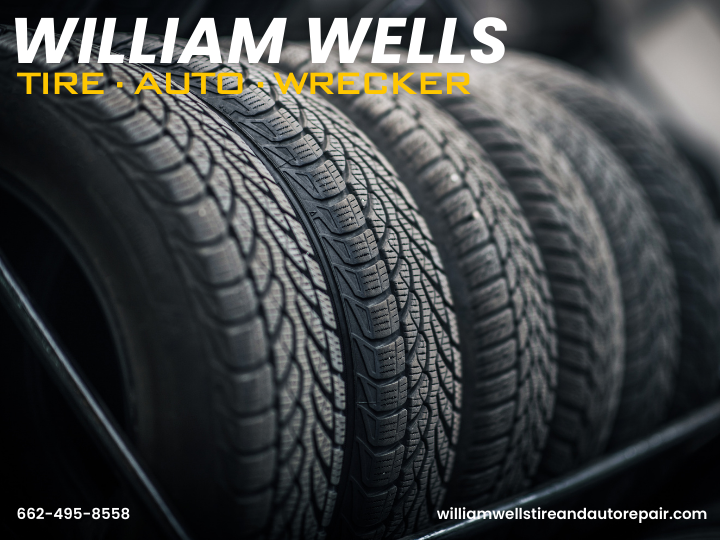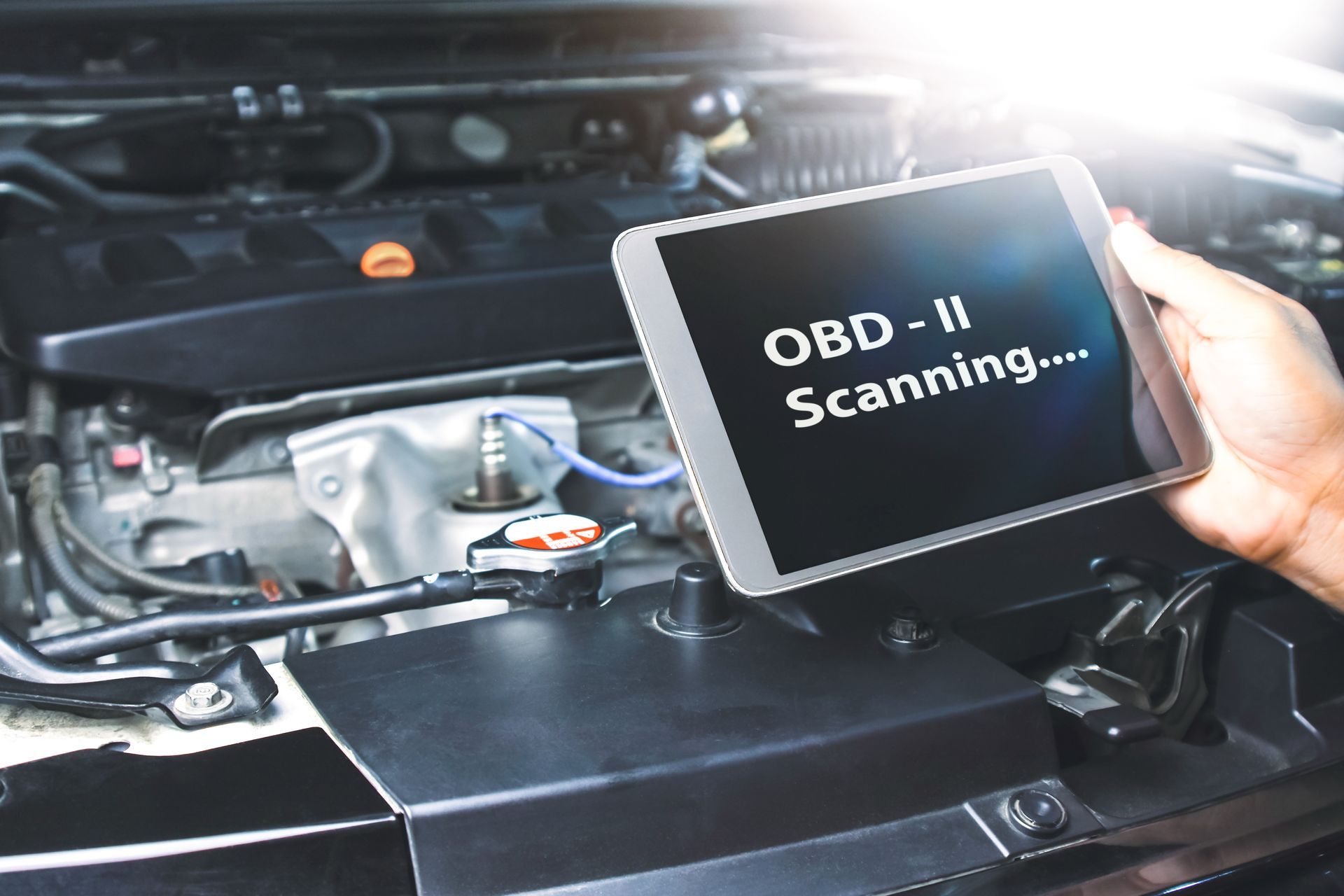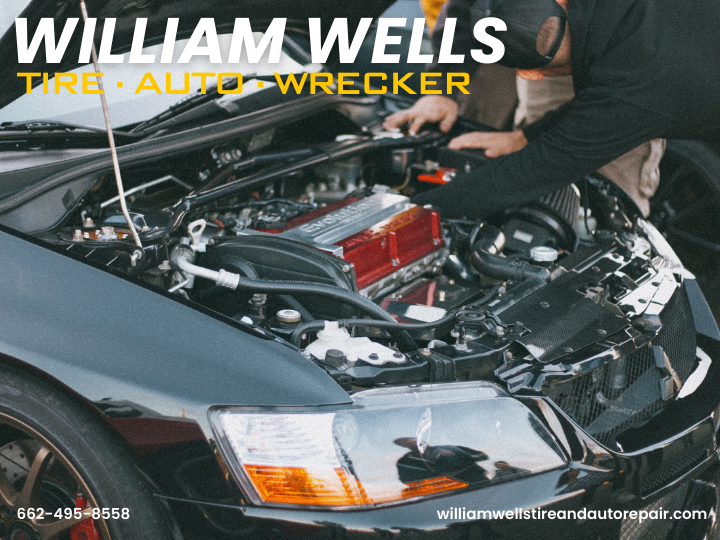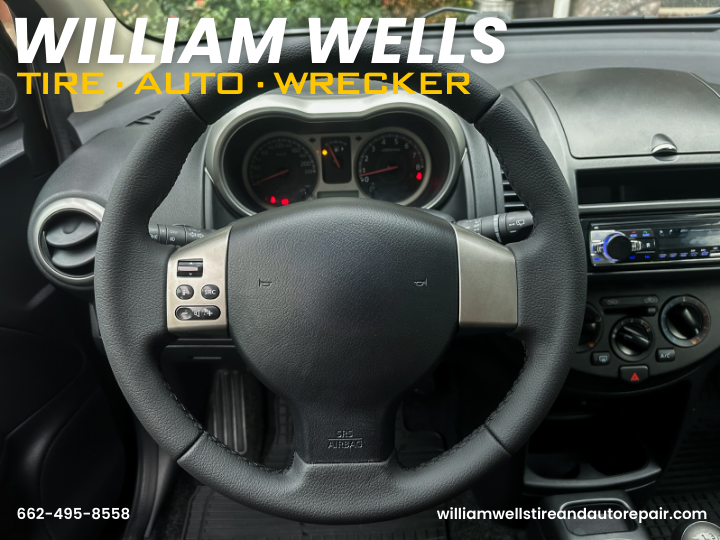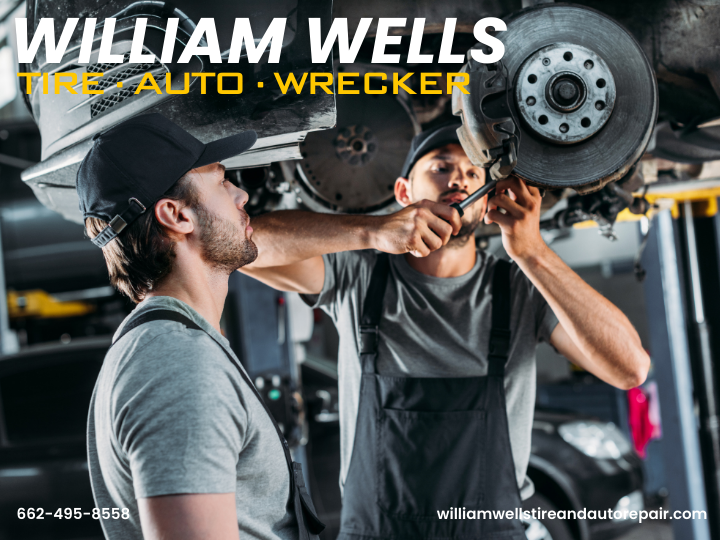Vehicle Inspection
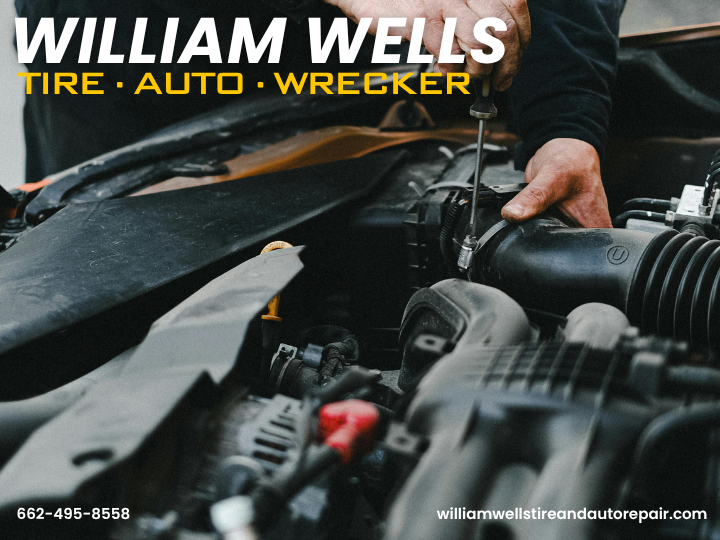
Vehicle Inspection: The Foundation of Safety, Reliability, and Long-Term Vehicle Performance
Introduction – Why Awareness Is the Real Engine of Safety
When you drive, you trust that your vehicle will respond instantly — that the brakes will grip, the tires will hold, and the engine will deliver. But that kind of trust isn’t built on hope; it’s built on inspection.
A vehicle inspection isn’t just about passing a requirement or spotting a single problem. It’s about awareness — understanding the condition of your car so you can make informed, confident decisions. It’s how you prevent small problems from turning into expensive breakdowns.
For drivers across Starkville, Columbus, and West Point, vehicle inspection isn’t just maintenance — it’s protection. It’s the system that keeps your car safe, your family secure, and your time uninterrupted. Because reliability isn’t random — it’s the product of preparation.
What a Professional Vehicle Inspection Really Covers
A proper inspection isn’t a quick look — it’s a deep dive into your vehicle’s performance, safety, and longevity. Each part tells a story about how your car has been driven and how it’s wearing over time.
At William Wells Tire & Auto, a complete inspection covers every major system with precision and care.
1. Exterior and Safety Systems
- Lights: Headlights, brake lights, and turn signals are tested for brightness, aim, and operation.
- Windshield and Wipers: Visibility is verified for streaking, cracks, and washer system performance.
- Tires: Tread depth, wear pattern, and inflation levels are inspected for safety, traction, and alignment consistency.
These are your first lines of defense. Good visibility and tire performance directly influence reaction time and stopping distance.
2. Braking System
- Brake pads, rotors, and calipers are measured for thickness and condition.
- Brake fluid is checked for moisture, level, and pressure consistency.
- The parking brake is tested for full engagement.
Mississippi’s heat and humidity can cause brake fluid degradation and corrosion. Regular inspection ensures your braking system always responds when you need it most.
3. Suspension and Steering
- Shocks, struts, and control arms are tested for leaks and looseness.
- Ball joints, tie rods, and bushings are examined for wear.
- Alignment and steering precision are verified for stability and comfort.
A healthy suspension gives you control — especially on rough roads between Columbus and West Point. Inspection ensures your car feels stable, predictable, and safe.
4. Underhood and Powertrain Systems
- Belts, hoses, and seals are checked for cracks, wear, or leaks.
- Fluids — oil, coolant, transmission, and power steering — are inspected for cleanliness and levels.
- The battery, alternator, and charging system are voltage-tested for reliability.
Your car’s heart — the engine — depends on precision. A professional inspection ensures every supporting system is performing at full strength, especially in Mississippi’s demanding climate.
5. Underbody and Exhaust
- Exhaust pipes, hangers, and mounts are inspected for corrosion or damage.
- The frame and undercarriage are checked for rust or structural fatigue.
- Fluid leaks are identified and traced to their source.
Humidity, heat, and occasional flooding in the South can take a toll under the surface. Underbody inspections protect your vehicle from long-term corrosion and decay.
Why Vehicle Inspections Matter More Than Repairs
Most people don’t think about inspection until something fails — a brake squeal, a check engine light, or a vibration. But waiting for failure means the damage is already done.
Inspection is prevention.
It’s how you detect issues while they’re still small, simple, and affordable.
A professional inspection protects you by:
- Catching problems early before they affect safety or performance.
- Preventing major repairs caused by neglect or delayed maintenance.
- Providing visibility into your vehicle’s condition and future needs.
In other words, inspection gives you control. And control is the foundation of safety.
The Power of Preventive Maintenance
Your vehicle operates like a chain — every system connected, each one depending on the other. When one weakens, the entire system feels it.
A good inspection identifies those weak links before they break.
1. Fluids as Indicators
Technicians analyze fluids for color, smell, and consistency. Contaminated oil, dark coolant, or burnt transmission fluid are early warnings of deeper issues.
2. Wear Patterns
Uneven tire wear reveals alignment or suspension issues. Pad wear patterns show caliper or rotor imbalance. Every mark and surface tells a mechanical truth.
3. System Relationships
Weak battery voltage stresses the alternator. Low tire pressure strains suspension. Inspections catch these system-to-system effects before they become performance problems.
The science is simple: prevention outperforms repair every time.
How Often You Should Schedule a Vehicle Inspection
Your car doesn’t need attention constantly — just consistently. A comprehensive vehicle inspection twice a year (once before summer, once before winter) keeps everything balanced and predictable.
You should also schedule an inspection:
- Before a long trip — to ensure reliability.
- Before your warranty expires — to catch covered repairs.
- After major impacts — curbs, potholes, or fender-benders.
- After extreme weather — heavy rain, ice, or flooding can cause hidden damage.
Drivers in Starkville, Columbus, and West Point benefit from seasonal checks due to Mississippi’s humidity, heat, and varying road conditions.
The Hidden Cost of Skipping Inspections
Skipping inspections doesn’t save money — it delays consequences.
Here’s what typically happens:
- Brake Neglect: Pads wear to metal, damaging rotors and doubling repair costs.
- Fluid Contamination: Leads to overheating, poor lubrication, or internal wear.
- Tire Neglect: Uneven wear shortens tire life and reduces fuel efficiency.
- Electrical Corrosion: Unchecked battery issues lead to starting failures.
Neglect compounds quietly — until one day, the problem is too big to ignore. Inspections replace reaction with readiness.
What to Expect During a Professional Vehicle Inspection
A professional inspection is structured, transparent, and data-driven — not guesswork.
You should expect:
- A Detailed Digital Vehicle Inspection (DVI) — Photos, videos, and technician notes on every component.
- Color-Coded Reports — Green (good), yellow (needs monitoring), red (urgent).
- Clear Communication — Honest explanations without pressure or confusion.
- Prioritized Recommendations — Safety first, reliability second, comfort third.
When you can see what the technician sees, you move from doubt to clarity. That’s the difference between average service and professional care.
The Difference Between State Inspections and Comprehensive Inspections
Mississippi does not require annual safety inspections, but that doesn’t mean vehicles should go unchecked. A state inspection, where applicable, focuses on legality and emissions. A comprehensive inspection focuses on long-term reliability and safety.
A professional inspection includes:
- Detailed brake and tire evaluation.
- Alignment and suspension assessment.
- Fluid analysis and contamination detection.
- Electrical testing and battery voltage check.
- Cooling and heating system integrity.
State inspections prove compliance. Comprehensive inspections prove performance.
Local Relevance – Why Mississippi Drivers Need Regular Inspections
Mississippi’s combination of heat, humidity, and rural roadways creates unique wear patterns on vehicles.
Common Local Stress Factors:
- High Humidity: Corrodes electrical connectors and metal components.
- Heat Exposure: Accelerates fluid degradation and belt wear.
- Rural Roads: Increase suspension stress and tire wear.
- Sudden Temperature Swings: Affect batteries and tire pressure.
Drivers in Starkville, Columbus, and West Point experience all these variables daily. Regular inspections ensure that your car performs reliably — no matter the climate or terrain.
The Relationship Between You and Your Technician
An inspection is more than a service — it’s a conversation. It builds trust between you and your technician.
When a technician shows you photos, explains what they see, and prioritizes repairs around your needs, you gain visibility and confidence. That transparency is the foundation of a lasting relationship — one built not on selling, but on service.
At William Wells Tire & Auto, that’s exactly how our team operates. We don’t just fix cars; we partner with our customers to keep them safe, informed, and prepared.
The Emotional Intelligence of Maintenance
Inspection is mechanical awareness — but it’s also emotional awareness in practice. It’s the discipline of noticing before reacting. It’s leadership on four wheels.
Emotionally intelligent drivers don’t wait for breakdowns. They anticipate, plan, and act with clarity. That same mindset separates good leaders from great ones — and good car owners from confident ones.
Inspection is emotional intelligence applied to motion — awareness turned into safety.
The Emotional Reward: Confidence and Control
Confidence on the road isn’t an emotion — it’s an outcome. It comes from structure, verification, and preparation.
When your car has been inspected by professionals, you feel it — in your posture, in your focus, in your calm. You stop worrying about “what if” and start focusing on where you’re going.
That peace of mind is the hidden return on every inspection.
The Long-Term Value of Inspection – Turning Maintenance into Mastery
Every inspection builds a record — a detailed log of your car’s health and wear patterns. Over time, this data becomes predictive, allowing you to plan for maintenance, budget for service, and extend your vehicle’s life far beyond average.
Inspection transforms ownership from reactionary to strategic. It’s not about checking boxes — it’s about running your car like a system that’s built to last.
Long-term reliability isn’t luck. It’s leadership.
Your Local Vehicle Inspection Experts in Starkville, Columbus, and West Point, MS
At William Wells Tire & Auto, we believe that a professional inspection is the foundation of safe, reliable driving. Our ASE-certified technicians use advanced diagnostic equipment and digital vehicle inspections to give you a clear, honest view of your car’s condition — complete with photos, notes, and transparent communication.
Whether you’re in Starkville, Columbus, West Point, or nearby areas in Oktibbeha, Lowndes, and Clay Counties, our team is committed to keeping your vehicle performing safely, efficiently, and dependably year-round.
Visit us today at one of our three convenient locations:
Starkville
12919 MS-182, Starkville, MS 39759
(662) 268-4081
Columbus
1625 Gardner Blvd, Columbus, MS 39702
(662) 240-2414
West Point
93 W Broad St, West Point, MS 39773
(662) 495-8558
Or visit online at https://www.williamwellstireandautorepair.com/
You can watch the video


